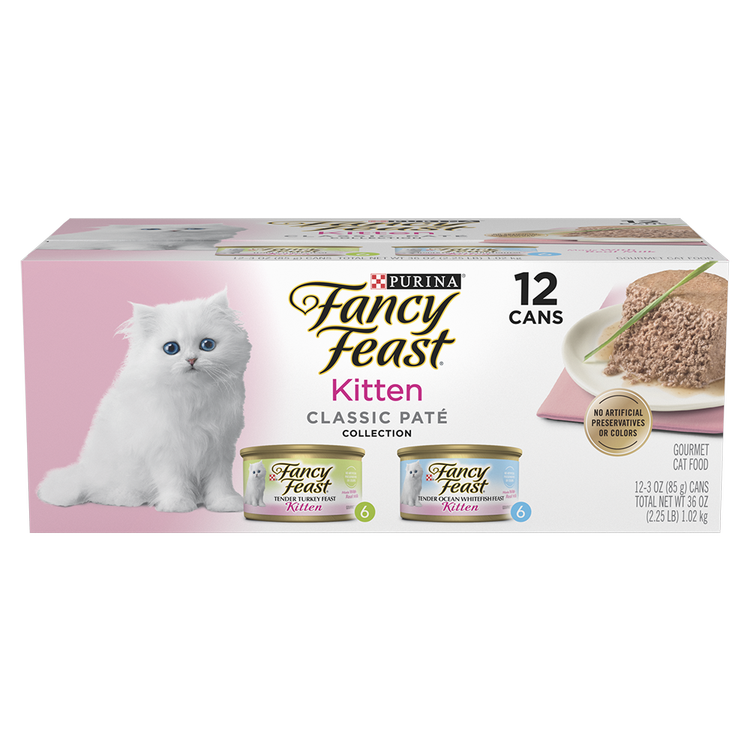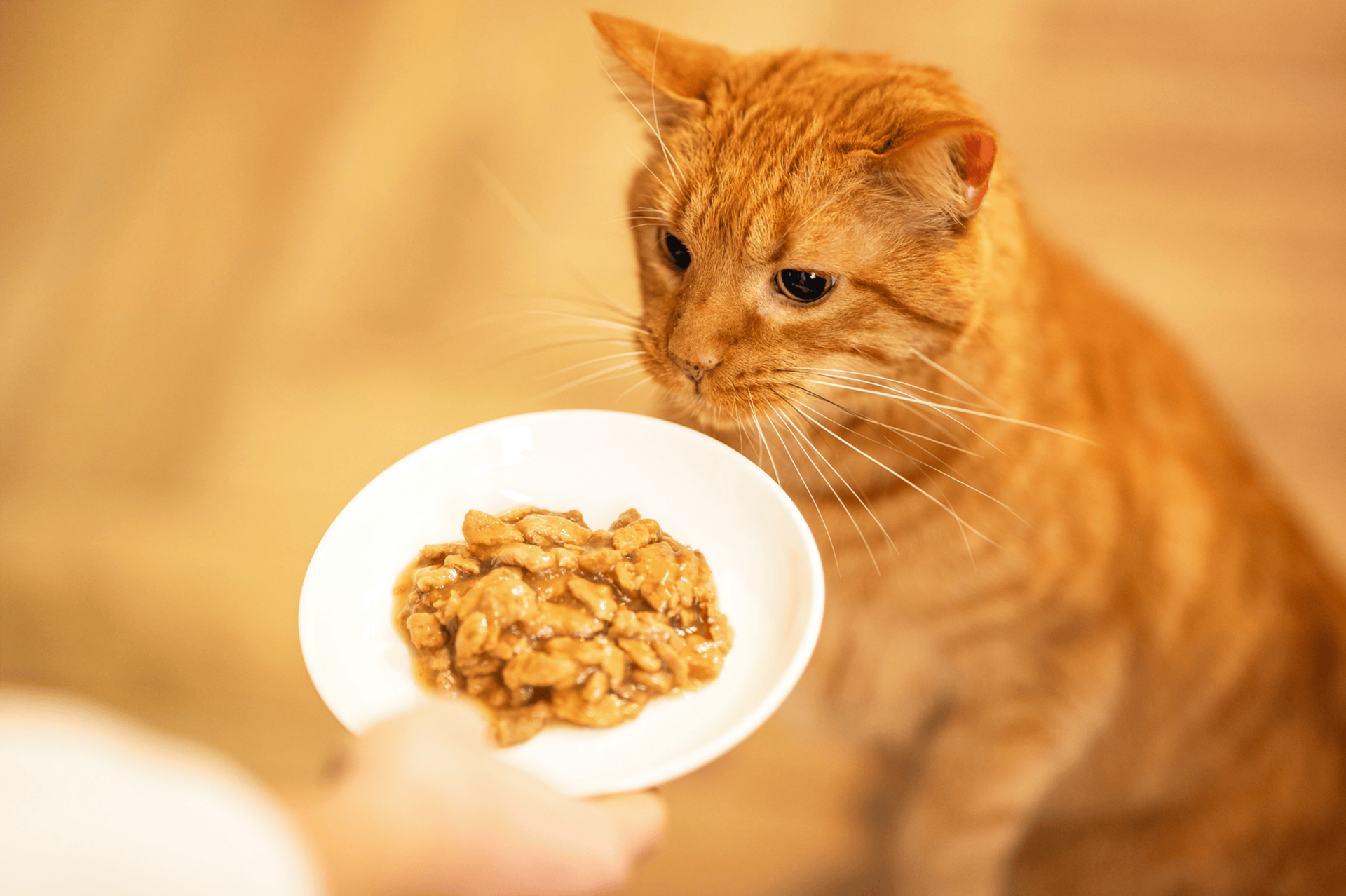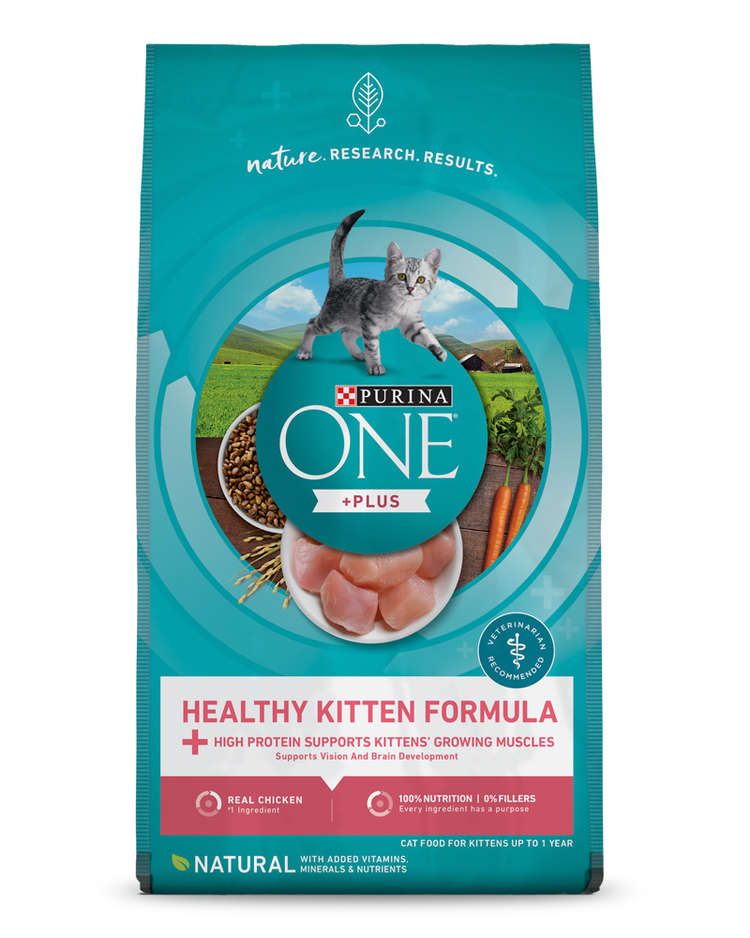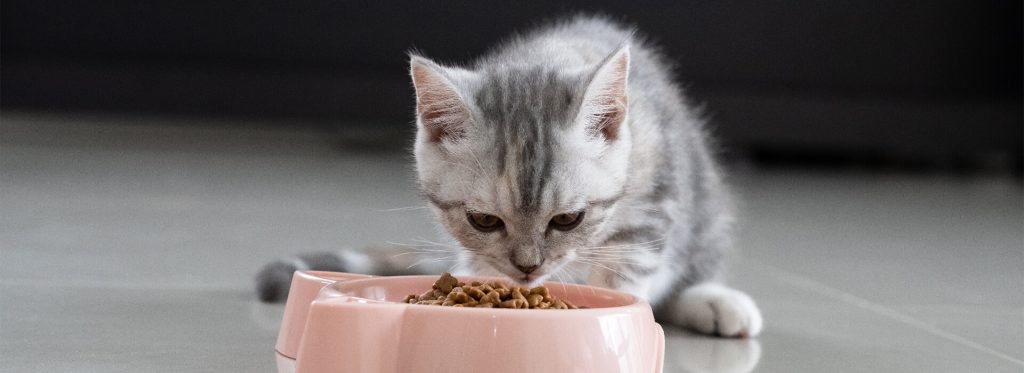Are you wondering how much cat food your new kitten should eat? Feeding your kitten the right amount is key to helping them grow healthy and strong.
Too much or too little can cause problems you don’t want to face. You’ll discover simple tips to get your kitten’s feeding just right. By the end, you’ll feel confident knowing exactly how to nourish your little furry friend every day.
Keep reading to learn the easy steps that make all the difference.
Kitten Growth Stages
Understanding kitten growth stages is key to feeding your little feline properly. Each stage demands different amounts and types of food to support healthy development. Knowing these phases helps you avoid overfeeding or underfeeding, ensuring your kitten thrives.
Newborn To 8 Weeks
During the first 8 weeks, kittens rely mostly on their mother’s milk or a special kitten formula if the mother isn’t available. Their tiny stomachs need frequent, small feedings—usually every 2 to 3 hours. At this stage, kitten food isn’t necessary yet, but if you start introducing it, make sure it’s soft and easy to digest.
Have you noticed how quickly newborn kittens grow? Their food intake might seem small, but it’s perfectly tailored to their rapid development.
8 Weeks To 6 Months
This is a critical growth phase where kittens transition to solid food. They need a lot of energy, so high-quality wet and dry kitten food works well. Feeding them about three to four meals daily helps maintain their energy and supports muscle and bone growth.
Try splitting their daily food amount into smaller portions throughout the day. It keeps them satisfied and helps prevent overeating. How do you measure your kitten’s food portions now?
6 Months To 1 Year
Between six months and one year, your kitten’s growth slows down but they’re still maturing. You can reduce feeding frequency to two meals per day while keeping the food nutrient-rich. At this point, monitoring weight and adjusting portions becomes crucial to avoid obesity.
Do you weigh your kitten regularly? Keeping track helps you adjust food amounts and ensures your cat grows into a healthy adult.
Daily Feeding Amounts
Understanding the daily feeding amounts for a kitten is key to ensuring healthy growth. Kittens need different calories and portions than adult cats. Their energy needs change quickly as they grow. Feeding the right amount supports strong bones and a healthy weight. Overfeeding or underfeeding can cause health problems. Watch your kitten’s weight and adjust food amounts as needed. Let’s explore how much food your kitten should eat each day.
Calories Needed By Age
Kittens burn a lot of energy during their first months. They need more calories per pound than adult cats. Here is a simple guide:
- 0-4 weeks: Mostly milk; calorie needs vary with nursing.
- 4-8 weeks: About 200-250 calories per day.
- 2-6 months: Around 250-300 calories daily.
- 6-12 months: 200-250 calories, slowing down as growth slows.
Providing enough calories helps kittens stay active and grow well.
Portion Sizes By Weight
Food amount depends on kitten weight and type of food. Wet food has more moisture, dry food is more calorie dense. Use the feeding guide on the food label as a start. Adjust portions based on your kitten’s weight:
| Kitten Weight | Wet Food (grams/day) | Dry Food (grams/day) |
|---|---|---|
| 1-2 lbs | 60-90 | 20-30 |
| 2-4 lbs | 90-150 | 30-50 |
| 4-6 lbs | 150-210 | 50-70 |
Measure food with a kitchen scale for accuracy. Watch your kitten’s weight weekly.
Meal Frequency
Kittens need several small meals daily. Smaller meals help digestion and energy levels. Suggested meal counts by age:
- Up to 3 months: 4 meals per day.
- 3-6 months: 3 meals per day.
- 6-12 months: 2 meals per day.
Stick to regular feeding times. Avoid free feeding to prevent overeating.
Types Of Kitten Food
Choosing the right type of food for a kitten is very important. The type of food affects their growth and health. Kittens need food that supports their energy levels and development. There are different kinds of food available, each with its benefits and drawbacks.
Wet Vs Dry Food
Wet food has a high water content. It helps keep kittens hydrated. It also tends to be more flavorful and easier to chew. Dry food is crunchy and helps clean teeth. It lasts longer in the bowl and is often less expensive.
Wet food is good for kittens who do not drink much water. Dry food is convenient and can be left out for longer. Many pet owners mix both types to give variety and balance.
Nutritional Requirements
Kittens need more protein and fat than adult cats. These nutrients help build muscles and provide energy. Food should have vitamins and minerals like calcium and phosphorus. These help bones grow strong.
Look for food labeled “complete and balanced” for kittens. It means the food meets all their nutritional needs. Avoid foods with too many fillers or artificial ingredients. Proper nutrition supports healthy weight and development.
Choosing Quality Brands
Choose brands with good reputation and clear ingredient lists. High-quality brands use real meat as the main ingredient. They avoid fillers like corn or wheat. Check for added vitamins and minerals.
Read reviews and ask your vet for recommendations. Quality food can be more expensive but helps prevent health problems. Feeding good food now saves money on vet bills later.

Credit: www.purina.com
Monitoring Your Kitten’s Intake
Keeping a close eye on how much your kitten eats is key to ensuring they grow healthy and strong. Monitoring your kitten’s intake isn’t just about measuring food; it’s about understanding their unique needs and behaviors. As your kitten develops, their appetite and nutritional requirements will change, so staying alert to signs of overfeeding or underfeeding helps you make timely adjustments.
Signs Of Overfeeding
You might notice your kitten gaining weight too quickly or developing a round belly that seems unusual for their age. Overfed kittens often appear lethargic and may have softer stools or digestive issues. If your kitten constantly begs for food despite just eating, it could be a sign that their feeding schedule or portions need tweaking.
Signs Of Underfeeding
On the flip side, a kitten that seems restless, constantly searching for food, or losing weight could be underfed. Watch for dull fur, low energy, and delayed growth milestones, which often signal a lack of sufficient nutrition. Your kitten’s meows might become more persistent, almost like they’re trying to tell you they’re still hungry.
Adjusting Portions Over Time
As your kitten grows, their appetite will naturally change. Start with the recommended portions on the food packaging but be prepared to increase or decrease based on your observations. It helps to keep a feeding journal to track their intake, weight, and energy levels—this way, you can spot trends and adjust portions before issues arise.
Special Feeding Tips
Feeding kittens requires more than just offering food; it demands attention to their unique needs. Special feeding tips can make a big difference in their health and growth. Understanding how to care for orphaned kittens, transition their diet, and keep them hydrated will help you provide the best start in life.
Feeding Orphaned Kittens
Orphaned kittens need extra care because they miss out on their mother’s milk. Use a kitten milk replacer, not cow’s milk, to avoid digestive issues. Warm the formula before feeding to mimic the mother’s body temperature.
Feed small amounts frequently—every 2 to 3 hours during the first week. You’ll notice how quickly they grow once they get the right nutrition. Have you prepared a feeding schedule that fits your daily routine?
Transitioning To Adult Food
Kittens should switch to adult cat food around 9 to 12 months. Start mixing adult food with kitten food gradually over 7 to 10 days. This helps avoid stomach upset and encourages acceptance of the new diet.
Keep an eye on your kitten’s weight and energy during this change. If they seem less active or lose weight, slow down the transition. What signs do you watch for to know your kitten is ready for adult food?
Hydration And Water Intake
Water is just as important as food for kittens. Always provide fresh, clean water in a shallow bowl. Some kittens prefer running water, so a pet fountain can encourage drinking.
Wet food also helps increase hydration, especially if your kitten isn’t drinking enough water. Dehydration can sneak up fast, so watch for dry gums or lethargy. How do you encourage your kitten to drink more water during hot days?

Credit: iams.eu

Credit: www.purina.com
Frequently Asked Questions
How Much Cat Food Should A Kitten Eat Daily?
Kittens need about 3 to 4 small meals daily. Feed ¼ to ½ cup of kitten-specific food per meal. Adjust portions based on age, weight, and activity level. Always provide fresh water alongside their meals.
When Should I Switch From Kitten To Adult Cat Food?
Switch at around 12 months or when your kitten reaches full size. Adult cat food meets different nutritional needs. Consult your vet for a smooth transition and proper timing.
What Types Of Food Are Best For Kittens?
High-quality wet and dry kitten food with balanced protein and fat are ideal. Wet food aids hydration; dry food supports dental health. Always choose products labeled for kittens.
How Do I Know If My Kitten Is Eating Enough?
Check your kitten’s weight and energy levels regularly. Healthy kittens gain weight steadily and stay active. If your kitten seems lethargic or loses weight, consult a vet.
Conclusion
Feeding your kitten the right amount is crucial for its health. Small meals throughout the day work best. Always use high-quality kitten food for balanced nutrition. Keep fresh water available at all times. Monitor your kitten’s growth and adjust portions as needed.
If unsure, consult with a vet for guidance. Remember, each kitten is unique. Pay attention to their needs and energy levels. A healthy diet supports growth and happiness. Take time to learn what works best for your furry friend. Happy feeding!

